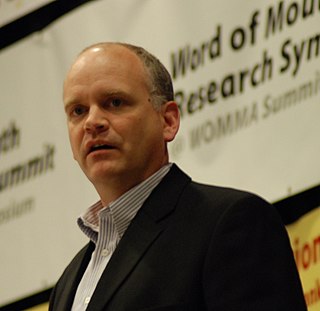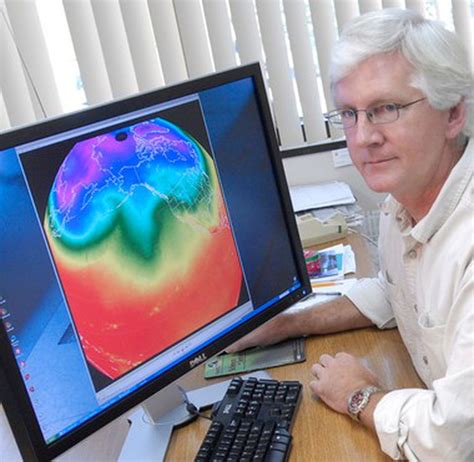A Quote by Azim Premji
Despite widely differing perspectives and agendas, there seems to be a remarkable global consensus that has built up over a fairly short period of time that climate change and ecology is one of the truly defining issues for humanity.
Related Quotes
Despite the international scientific community's consensus on climate change, a small number of critics continue to deny that climate change exists or that humans are causing it. Widely known as climate change "skeptics" or "deniers," these individuals are generally not climate scientists and do not debate the science with the climate scientists.
Many people have the impression that there is significant scientific disagreement about global climate change. It's time to lay that misapprehension to rest. There is a scientific consensus on the fact that Earth's climate is heating up and human activities are part of the reason. We need to stop repeating nonsense about the uncertainty of global warming and start talking seriously about the right approach to address it.
In the current setting the situation of the poor is neglected despite the grotesque wealth of the capitalist elites, and the dangers to the well-being of humanity associated with climate change are ignored despite a strong scientific consensus warning of the adverse, and possibly irreversible, consequences of further delays in reducing the level of greenhouse gas emissions, especially carbon.
When climate change gets some attention in a 100-page document, the most important parts of which will have to do with the theology of stewardship and the theology of "human ecology," it's almost certainly going to be rapturously embraced, or bitterly opposed, as a "global-warming encyclical," despite the evidence that it's much more broadly gauged than that.
Global Warming Snowstorm Algore, paralyzing the upper Midwest two weeks before winter. Every time he shows up someplace, every time, it's almost comical, every time Al Gore shows up someplace there's either an outbreak of weather that is the exact opposite of what he's talking about, he never does seem to get embarrassed. That's why they stopped calling it global warming and now call it climate change so that virtually every perceived abnormality can be said to be caused by climate change.
Politicians and some of the scientists like to say that there's a consensus now on global warming or the science has been settled, but you have to ask them, what is there a consensus on? Because it really makes a difference. What are you talking about? The only consensus I`m aware of is that it's warmed in the last century. They completely ignore the fact that there's this thing called the Oregon petition that was signed by 19,000 professionals and scientists who don't agree with the idea that we are causing climate change.
I think the challenge of climate change in particular is the challenge for us to create and produce new norms for a new kind of world. And that's why I think as important as the issue of climate change is, it's even more important than it seems because if we can't evolve very quickly, new norms to deal with issues like climate change, we're not going to be able to survive in the kind of world we've created. So I think, really, the whole nature of democracy, of governance, of global community and of solving the kinds of problems of the 21st Century are really at stake.
We don't have a hundred years to fix climate change. We don't have a hundred years to wait until we've built all these bridges and rapport and scientific understanding and so on and so forth. We have to fix climate change with the people we have right now, and to a large extent with the perspectives we have right now as well.
Climate scientists think of nothing but climate and then express their concerns in terms of constructs such as global mean surface temperature. But we live in a world in which all sorts of change is happening all the time, and the only way to understand what climate change will bring is to tell stories about how it manifests in people's lives.


































